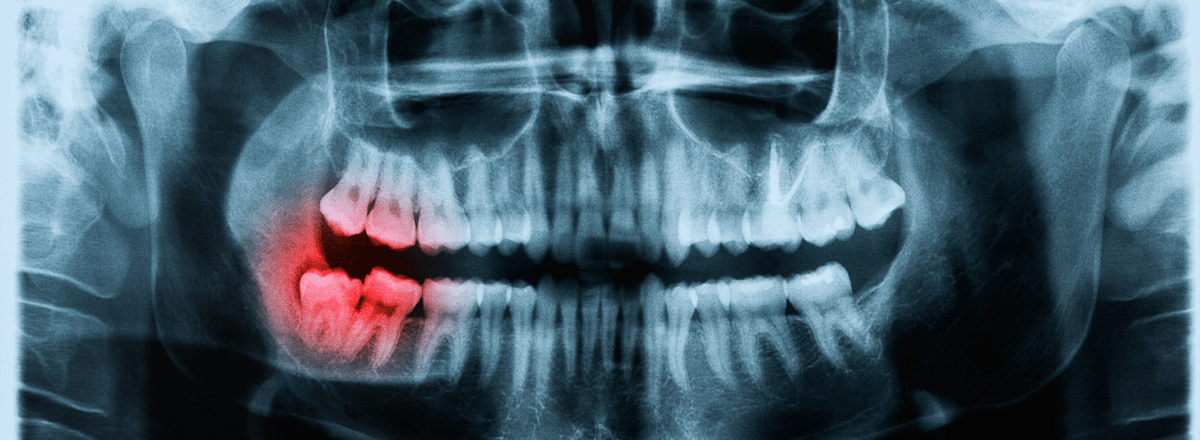By adulthood, we can have up to 32 teeth, with the four wisdom teeth (also known as third molars) the last to emerge. Whilst a later time is possible, they are likely to appear between our late teens and mid twenties.
Not all aspects of evolution have kept in tune and our mouths are often now smaller than is needed to take the additional wisdom teeth. This may make them misaligned, or they can fail to break through the jaw, or gum.
Teeth which are unable to emerge are known as impacted. Cleaning is awkward, leading to decay, or infection, including on adjacent teeth. Impacted wisdom teeth can cause swelling and ultimately, bone loss, nerve damage, or periodontal disease.
Wisdom tooth issues are normal and can work themselves out but having at least one which is impacted, or troublesome is common.
Individual Diagnosis
Wisdom teeth are a unique experience for each of us and need careful assessment. Your dentist will take x-rays, carry out a detailed physical examination and discuss the effects you have felt.
Preserving healthy teeth is always our wish. You may simply need a salt, or antibacterial mouthwash to cope with temporary symptoms but for wisdom teeth, there can be times where removal prevents future problems.
If teeth have not fully emerged, identifying a likely growth path and the physical effects will be helpful. Where removal looks a sensible option, any potential nerve damage needs to be considered.
With good planning, wisdom tooth removal is not however too invasive. There can be times where a specialist referral is needed and most cases can be safely treated at our clinic by our dentist Dr. Azza.
Wisdom Tooth Removal
The area will be numbed with a local anaesthetic before removal. Stitches can be required and are likely to be, if the tooth is impacted. This often requires removing a degree of bone, or gum above the tooth.
Stitches may be self dissolving, or removed about a week later. Quite possible your dentist will want to check the area around the same time.
Removing wisdom teeth can cause some swelling, possibly tingling, or numbness in your lips, tongue, or cheek. Your face will soon return to a normal appearance and other symptoms are normally gone within a few days.
A good chance your mouth will feel more comfortable, less crowded, especially if the teeth were impacted. Dental treatment for managing wisdom teeth is about long term comfort and oral health, our team will be pleased to offer advice.

